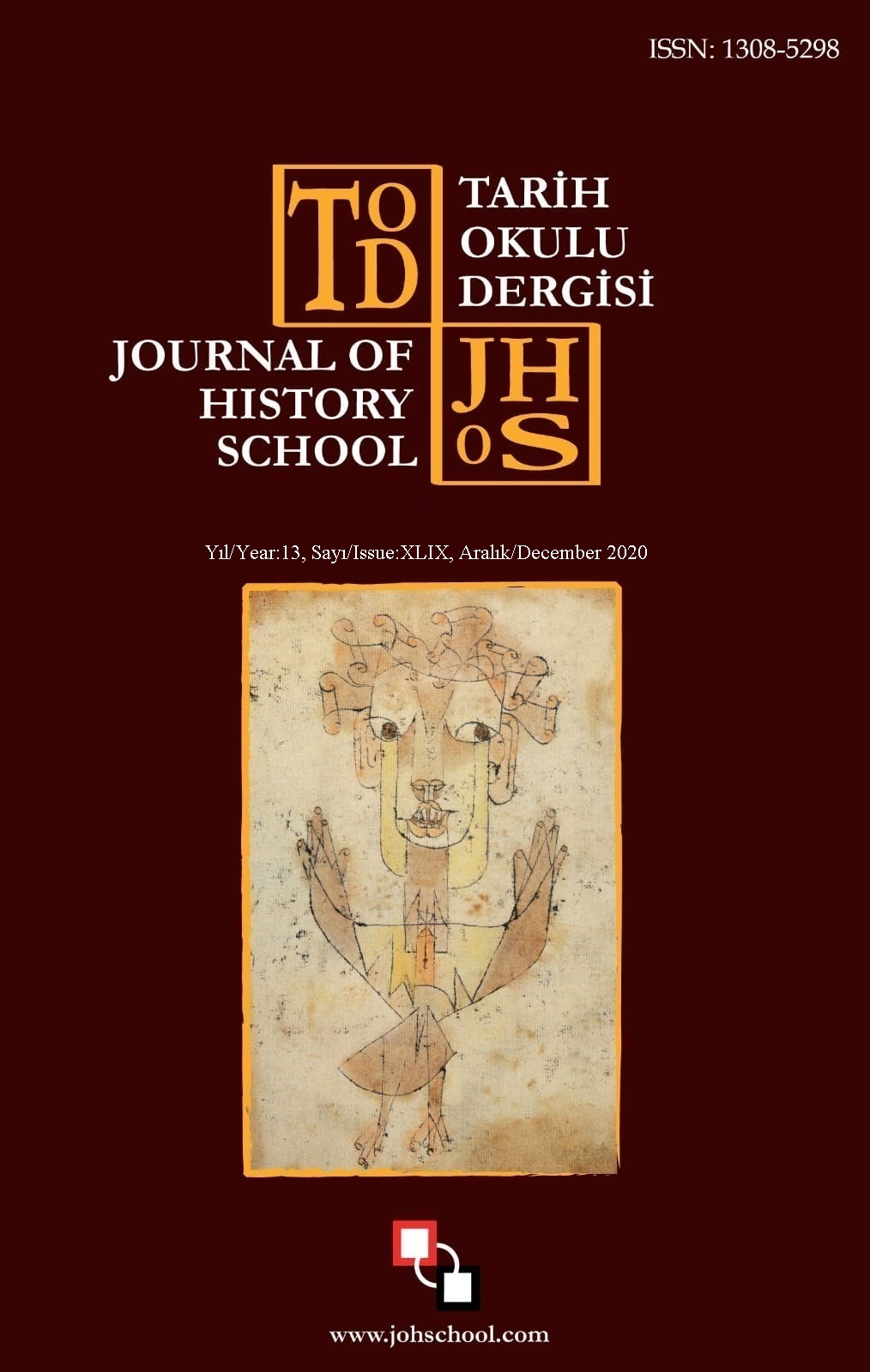Author :
Abstract
Teknoloji, eğitimde kişiselleştirme için büyük fırsat sağlamaktadır. Bu yüzden, günümüzde kişiselleştirilmiş öğrenme her zamankinden daha fazla gündeme gelmiştir. Ancak eğitimcilerin kişiselleştirilmiş öğrenmeyi nasıl algıladıkları bilinmemektedir. Bu nedenle, bu çalışma İngilizceyi yabancı dil olarak öğreten öğretim elemanlarının kişiselleştirilmiş öğrenme ve kişiselleştirilmiş dil öğrenimi algılarını belirlemeyi amaçlamıştır. Çalışma nitel bir araştırmayı benimsemiştir ve çalışmaya 8 İngilizce öğretim elemanı katılmıştır. Veri toplamak için araştırmacı tarafından geliştirilen açık uçlu soru formu kullanılmıştır. Çevrimiçi ortamda toplanan veriler içerik analizi yoluyla çözümlenmiştir. Bulgular, öğretim elemanlarının kişiselleştirilmiş öğrenmeyi öğrencilerin ihtiyaçlarına, ilgi alanlarına, öğrenme hızlarına, güçlü ve zayıf yönlerine göre düzenlenmiş bir öğrenme yaklaşımı olarak tanımladıklarını göstermiştir. Öte yandan, öğretim elemanları, her ikisi de öğrenenlerin ihtiyaç ve ilgilerini dikkate aldığından bireyselleştirilmiş öğrenme ve kişiselleştirilmiş öğrenmenin aynı kavramlar olduğunu düşünmektedirler. Ayrıca, katılımcılar teknolojinin kişiselleştirilmiş öğrenme için birçok araç sağladığına ve bu nedenle katkısının çok önemli olduğuna inanmaktadırlar.
Keywords
Abstract
Technology has a great opportunity for providing personalization in education. Thus, personalized learning has come to the agenda more than ever. However, it is not known how educators perceive personalized learning. Hence, this study aimed at identifying EFL (English as a Foreign Language) instructors’ perceptions of personalized learning and personalized language learning. The study adopted a qualitative research and 8 EFL instructors participated in the study. An open-ended questionnaire form that was developed by the researcher was used in order to collect data. The data were gathered in an online setting. The data were analyzed through content analysis. The findings showed that the instructors defined personalized learning as a learning approach that was regulated to the learners’ needs, interests, paces, strengths and weaknesses. On the other hand, the instructors of this study thought that individualized learning and personalized learning were the same concepts as both of them took learners’ needs and interests into consideration. Moreover, they believed that technology provided lots of tools for personalized learning so its contribution was very important.
Keywords
- Arnesen, K. T., Graham, C. R., Short, C. R., & Archibald, D. (2019). Experiences with personalized learning in a blended teaching course for preservice teachers. Journal of Online Learning Research, 5(3), 251–274.
- Basham, J. D., Hall, T. E., Carter, R. A., & Stahl, W. M. (2016). An operationalized understanding of personalized learning. Journal of Special Education Technology, 31(3), 126-136. https://doi.org/10. 1177/0162643416660835
- Bulger, M. (2016). Personalized Learning: The Conversations we’re Not Having. https://datasociety.net/library/personalized-learning-the-conversationswere-not-having/, Access date: 07.08.2021.
- Chen, C. M., & Hsu, S. H. (2008). Personalized intelligent mobile learning system for supporting effective English learning. Educational Technology & Society, 11(3), 153–180.
- Courcier, I. (2007). Teachers’ perceptions of personalised learning. Evaluation & Research in Education, 20(2), 59-80. https://doi.org/10.2167/eri405.0
- Creswell, J. W. (2007). Qualitative İnquiry and Research Design: Choosing Among Five Approaches (2nd Ed.) Sage Publications.
- Creswell, J. W. & Miller, D. L. (2000). Determining validity in qualitative inquiry. Theory into Practice, 39(3), 124-130.
- Doğan, P. ve Çakır, Ö. (2019). İngilizce öğretiminde kişiselleştirmenin üniversite öğrencilerinin başarılarına etkisi ve uygulamaya dair öğrenci görüşleri. Manas Sosyal Araştırmalar Dergisi, 8 (4), 3266-3285.
- Dinkins, T. M. (2017). Teacher’s perceptions of implementing personalized learning in urban elementary school classrooms in ProQuest LLC. ProQuest LLC.
- Fu, T. (May, 2008). Personalized knowledge-aware framework for language learning in pervasive learning environment. Paper presented in Grid and Pervasive Computing Workshops, Kunming, China.
- Griol D., Baena I., Molina J.M., de Miguel A.S. (2014) A multimodal conversational agent for personalized language learning. In: Ramos C., Novais P., Nihan C., Corchado Rodríguez J. (eds) Ambient Intelligence Software and Applications. Springer, Cham. https://doi.org/10.1007/9783-319-07596-9_2
- Hsu, M. H. (2008). A personalized English learning recommender system for EFLs. Expert Systems with Applications, 34(1), 683–688.
- Hsu, C.-K, Hwang, G-C., & Chang, C-K. (2013). A personalized recommendation-based mobile learning approach to improving the reading performance of EFL Students. Computers & Education, 63, 327-336. https://doi.org/10.1016/j.compedu.2012.12.004
- Hughey, J. (2020). Individual personalized learning. Educational Considerations, 46(2).
- Hurtienne, L. E. (2017). Middle school teachers’ perceptions of the impact of transitioning to personalized learning in ProQuest LLC. ProQuest LLC.
- Jung, J., & Graf, S. (July, 2008). An approach for personalized web-based vocabulary learning through word association games. Paper presented in International Symposium on Applications and the Internet, Turku, Finland.
- Kerr, P. (2016). Personalization of language learning through adaptive technology. Part of the Cambridge Papers in ELT series. Cambridge University Press.
- Lincoln, Y.S., & Guba, E.G. (1985). Naturalistic Inquiry. Sage.
- Petersen, S. A.;Markiewicz, J. K. &. Bjørnebekk S. S: (2009). Personalized and contextualized language learning: choose when, where and what. Research and Practice in Technology Enhanced Learning, 4(1), 33-60. https://doi.org/10.1142/S1793206809000635.
- Redding, S. (2013). Through the student’s eyes: A perspective on personalized learning and practice guide for teachers in Center on Innovations in Learning, Temple University. Center on ınnovations in learning, Temple university.
- Sahin, M., & Kisla, T. (2016). An analysis of university students’ attitudes towards personalized learning environments. Turkish Online Journal of Educational Technology - TOJET, 15(1), 1-10.
- Şahin, S. & Uluyol, Ç. (2016). Preservice teachers’ perception and use of personal learning environments (PLEs). International Review of Research in Open and Distributed Learning, 17(2), 141-161.
- Shemshack, A., & Spector, J. M. (2020). A systematic literature review of personalized learning terms. Smart Learning Environments, 7(1), 33. https://doi.org/10.1186/s40561-020-00140-9
- Troussas C., Chrysafiadi K., Virvou M. (2018). Machine learning and Fuzzy logic techniques for personalized tutoring of foreign languages. In: Penstein Rosé C. et al. (eds) Artificial Intelligence in Education. AIED 2018. Lecture Notes in Computer Science, 10948. Springer. https://doi.org/10.1007/978-3-319-93846-2_67
- Underwood, J., & Banyard, P. (2008). Managers’, teachers’ and learners’ perceptions of personalised learning: Evidence from Impact 2007. Technology, Pedagogy and Education, 17(3), 233-246. https://doi.org/10. 1080/14759390802383850
- U.S. Department of Education, Office of Educational Technology (2017). Reimagining the Role of Technology in Education: 2017 National Education Plan Update. U.S. Department of Education.
- Yeung, C-Y. & Lee, J. (2018). Personalized text retrieval for learners of Chinese as a Foreign Language. in Proceedings of the 27th International Conference on Computational Linguistics (pp.3448-3455). EXTENDED ABSTRACT
